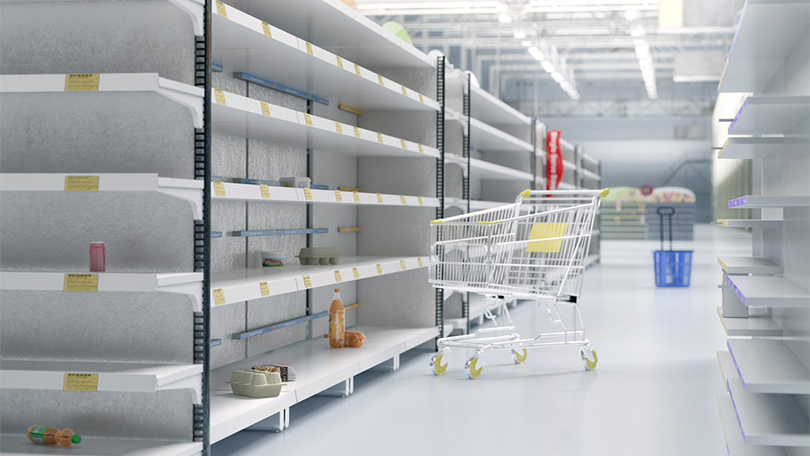Welcome to the age of FORO (fear of running out)

The past few weeks have felt like the pages of a dystopian fiction novel. But sadly, it is our new reality. Measures imposed by countries around the globe have differed greatly and so too has the time taken to implement them.
However, one thing these new draconian protections have in common though is that almost all industries, FMCG included, have been dramatically impacted and potentially changed forever.
In FMCG, the ongoing uncertainty has fuelled unparalleled grocery sales, in the two weeks to March 24, 2020:
- 80 per cent of categories recorded dollar growth; and
- 20 per cent of stores recorded greater than 100 per cent dollar growth versus year ago.
During the same time period, the top five growth driving food fixtures are meat, pet food, cereal, cheese and canned fish. The top non-food fixtures are medicinal products, cleaning goods, toilet paper, laundry and soap and body wash.
We’ve also seen increased pantry stocking or panic purchasing across several categories with 33 per cent of IRI shopper panellists confessing to stock piling on daily essentials. And yet no category has been as mentioned, publicised, ridiculed or coveted as the humble roll of toilet paper.
Total consumer tissue products, including facial tissue, paper towels and of course toilet tissue, have exploded with 91% dollar growth over the week ending March 22, 2020 versus the same time period a year ago. This unexpected $17 million uplift in a single week has not been a blessing to our overstretched retailers, as they struggle to keep up with demand.
This category growth perfectly demonstrates the phenomenon for which IRI has coined the term FORO – fear of running out. While consumers have been picking up extra tins of tuna and packs of rice, this behaviour repeated on toilet paper is very noticeable as there are just not as many units for sale on the shelf as the products themselves are so much larger. The larger product size and fewer units kept combined with FORO has caused the out of stocks. These out of stocks have fuelled FORO even more creating a vicious cycle of demand.
The good news is that the growth derived from hoarding has slowed as people become more accustomed to these challenging times and return to calmer purchasing patterns.
I think it is important that all of us in the FMCG industry try and reassure consumers who are understandably fearful during these unprecedented times.
Australians should not be concerned about temporary shortages in supply, as they are just that; temporary. Australia produces roughly 90 per cent of the fresh fruit and vegetable, meat, milk and eggs sold in supermarkets (with the exception of some specific packaged goods), almost everything we eat and drink is grown and made right here. We are in much better shape than countries who rely on imported goods.
Please be patient with out of stocks. Australia has some of the most sophisticated supply chain systems in the world and we can trust that they will catch up. The recent surge in stockpile purchasing has placed a significant strain on the retailers as they try to get enough stock on shelf to meet the demand and do this in way that is safe for their employees.
To help with this, please only buy what you need and show kindness to one another.
For more insights on the driving forces of the recent consumer behaviour driving these purchasing decisions, visit our COVID-19 insights hub here.
By Justin Nel, Lead Consultant, IRI
Sources:
IRI analysis; IRI Australia MarketEdge Grocery 24/03/2020
IRI Report: COVID-19 Learnings from Australian and Global Trends
Comment Manually
You must be logged in to post a comment.

No comments